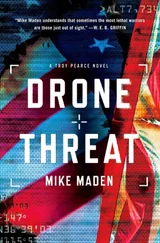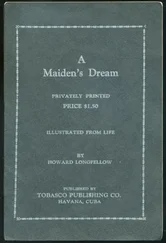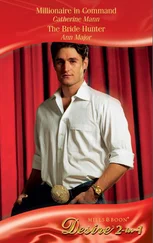It was her last scheduled evening in Tokyo, and she and Pearce had been invited to Ito’s home for a private soirée of entertainment and food, all of it quite traditional. Ito’s lovely young wife joined them, along with Tanaka and his equally intimidating spouse. Pearce and Myers were the third couple, or so it seemed. Despite her throbbing headache, Myers looked stunning in her form-fitting black-sequined evening gown, and Pearce was quite handsome in his hand-tailored gray suit. A striking pair. Their comfortable friendship could have been mistaken for intimacy. They all sat in leather club chairs around a large hammered-copper cocktail table in Ito’s expansive library.
“I’m still thinking about the Noh play we saw tonight,” Myers said. Ito had invited a troupe of Japan’s finest Noh actors and musicians to perform for his honored guests.
“What is it that most captivated you?” Tanaka’s wife asked. Her eyes were searching, imperious. “The singing, perhaps? It must sound strange to Western ears.”
Everything about the play was strange to Myers. The atonal chorus, the carved masks, the drums. Her eyes drifted to the full suit of samurai armor standing in the corner. It had been worn by one of Ito’s ancestors in battle long ago.
“I’m still amazed that there is no director for the play and that the actors have only one rehearsal. And yet, everything was so well choreographed. The singing, the music, the blocking.”
“The oldest Noh plays are more than seven hundred years old,” Prime Minister Ito said. “Each play, and each part in the play, has been passed down through generations of actors who continue to study. It is a collective effort, but each actor has a duty and responsibility to his or her own role. No two performances are ever the same, either for the actors or the audience. Each is completely unique.”
“Of course, more Japanese have listened to Simon and Garfunkel than they have to Noh music,” Tanaka lamented. “Even the Carpenters are more popular.”
“Noh is difficult,” Ito’s young wife insisted. The former actress and model was an inch taller than her husband, even with his towering shock of gray hair. She turned to Myers. “How many young Americans prefer Shakespeare to Duck Dynasty ?”
“Not enough.” Myers took a sip of bourbon. The glass trembled slightly in her hand.
“What about you, Mr. Pearce? What did you think of the ghosts and monsters tonight?” Ito asked. The play, Nue , featured the ghost of a slain monster.
“Or about Japan itself?” Tanaka asked, taking another sip of Jefferson’s Presidential Select, Myers’s new favorite Kentucky straight bourbon whiskey. She’d brought a bottle of the double-gold winner for dinner tonight, a gift to the prime minister. A nod to their friendship and shared tastes.
Pearce shrugged. He was as uncomfortable in his suit as he was being in a room with politicians. It felt more like a court-martial than an evening of entertainment. He knew he could undo any good work he’d accomplished so far by saying just one stupid thing.
“I can’t get over the contrasts,” Pearce finally said. “Your nation is both ancient and modern, the best of both. But it seems like an irreconcilable contradiction in some ways.”
“You are more right than you know,” Tanaka said. “We are losing our history and culture to Western modernity. We are losing ourselves.”
“Don’t listen to him.” Ito laughed. “He’s old-fashioned. He’d like to go back to samurai swords and emperor worship.”
“We’ve lost something in the embrace of the West,” Tanaka said. His red eyes saddened. Myers wondered if he’d been drinking too much. She watched him down several shots of sake at dinner, and now he was working on his second bourbon.
Myers wanted to ask the prime minister to turn down the air-conditioning. She felt the sweat beading up on her forehead. Her head was throbbing now.
Mrs. Ito smiled. “In your previous travels here, Madame President, have you heard of the term nihonjinron ?”
Myers wanted to dislike the pretty former actress. But she was devastatingly charming and sharp as a tack. “No, I’m sorry.”
“It’s our ongoing national conversation, a question we keep asking ourselves. ‘What does it mean to be Japanese?’”
“You must be having the same conversation in your country,” Tanaka’s wife said. “Open borders, mass migration, globalism. Is it true that in some cities it is illegal to fly an American flag now because it upsets the foreigners living there?”
“I’ve never heard that,” Myers said. But she was telling only half the truth. More and more apartment complexes, businesses, and even universities were putting greater restrictions on anything that smacked of “American” because of the fear of offending foreign-born residents and customers. Shameful, in her opinion.
Tanaka smiled. “My English is terrible. Maybe you can help me. I’ve just heard of the phrase ‘undocumented citizen.’ What exactly does that mean?”
Myers forced her own smile. They both knew that Tanaka’s English was faultless. “Some people in my country feel that the term ‘illegal alien’ is pejorative and prefer the term ‘undocumented immigrant.’ But even more progressive people are now using the term ‘undocumented citizen’ to fully legitimize the illegals’ status and pave the way conceptually for them to vote, hold office, and enjoy every other right of a citizen.”
“Doesn’t that destroy the meaning of citizenship?” Ito’s wife asked.
“Some would say so,” Myers said.
Tanaka shook his head in disbelief. “The purpose of the state is to protect and provide for its citizens. If you change the definition of ‘citizen,’ aren’t you changing the definition and purpose of the state?”
“Possibly.”
Tanaka’s wife refilled her empty glass. “Political correctness is killing your country.”
“I think every country today is struggling with the concepts of nationality, citizenship, status, and rights. Globalism is erasing national borders. The free flow of money, communications, commerce, and labor are all making borders less and less relevant to the lives of most people in the West,” Myers said.
“And you support this idea of globalism?” Tanaka asked.
“No,” Myers said. “But it’s here.”
“Why?”
“Economies of scale. Ease of commerce. Profits, ultimately,” Ito said. His family-owned business earned most of its cash overseas, and his past work with the trade delegation only confirmed this.
Pearce took another sip of club soda, hating like hell he’d given up the booze. “Corporations are also part of the problem.”
“But you are the head of an international corporation!” Mrs. Ito said.
Pearce smiled. “Which makes me an expert.”
“How are corporations a problem?” Ito asked.
“American corporations depend on the United States to protect their interests at home and abroad, but more and more of them are relocating their headquarters to other countries with lower tax rates. They want the benefits of American government without having to pay for it. Their only loyalty is to their own profits, not the country that sustains them.”
“But it’s the responsibility of corporations to earn a profit, isn’t it?” Mrs. Tanaka asked. She was the daughter of one of the wealthiest industrialists in Japan.
“Of course. But not at the expense of the national interest.”
“‘What’s good for GM is good for America!’” Ito said, his familiar smile brightening his face. A famous American misquote.
“I say what’s good for America is good for GM,” Myers countered. “American corporations used to show loyalty to the nation instead of just to themselves. Of course, that’s how too many American citizens feel, too. Their only loyalty is to themselves. They don’t want to pay any taxes, but they want to have all of the benefits of government.”
Читать дальше












